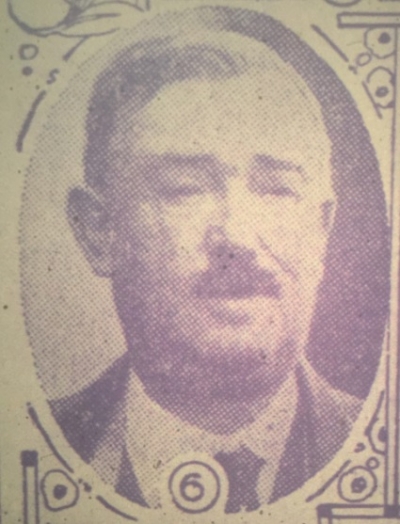Football News: Former Liverpool Managers Part 3 - The First Shock Resignation

Image from: playupliverpool.com
Former Liverpool Managers - Part 3
David Ashworth 18th December 1919 - 12th February 1923
Ashworth is a difficult man to research, with many discrepancies in the reports of him. Mostly he is referred to as being born in Waterford, Ireland, but the 1881 Census records him as having been born in Poulton-le-Fylde, near Blackpool. There is little in the way of information about his early years, though it is known that he played for Newchurch Rovers and became a referee for the Football League prior to management.
His career in football management began with Oldham Athletic, becoming their first manager before moving on to take charge of Stockport County, who he stayed with throughout the First World War. Liverpool were in the hands of caretaker manager George Patterson and struggling badly in the first season of competitive football. 11 games into the season and they had just 2 wins to show for their efforts.
That proved the catalyst for change and Ashworth was approached and agreed to take over in December 1919. His first season was one of consolidation and he managed to move them up the table to finish 4th. The following season, 1920/21 was a similar story, with Liverpool once again finishing 4th in the league, but Ashworth was creating something special built around a solid defensive platform.
Reporters of the day talked about how the defence lacked the rashness and impetuousity of rivals and how surefooted and calculating they were. The defence consisted of two full internationals, in the days when that meant something, backed up by a legendary keeper. Northern Ireland's Elisha Scott was claimed by many to be the best keeper in the world and he helped the team to concede just 36 goals in their 42 matches in the 1921-22 season.
Liverpool were so strong that season that they only lost the first league match at Anfield after losing 3 of their team, Tommy Lucas, Harry Chambers and Tom Bromilow, who were off playing in a Football League XI which was beating a Scottish League XI. In their absence Bolton Wanderers managed to win 2-0, though they did need the aid of an injury to Scotland international Donald McKinlay to allow them to pick up that victory.
Even without their main centre forward, Richard Johnson, who missed the season through injury, Liverpool managed to win the league, their 3rd title, by 6 points from Tottenham Hotspur. In great part helped by the goals of Harry Chambers and Dick Forshaw, who both scored over 20 goals that season. Heading into the 1922-23 season all seemed rosey and Liverpool soon rose back to the top of the league, despite Ashworth becoming the first (and so far only) Liverpool manager to lose 4 matches in a row at Anfield.
They lost 0-1 to Aston Villa, 2-3 to Sheffield United, 0-2 to Cardiff City and 0-1 to Newcastle United over the course of November and December 1922. However, by this point of the season rumours were circulating that Ashworth was set to return to former club Oldham Athletic, who were struggling at the bottom of the table. In fact the rumours became so insistent Ashworth did an interview with the Liverpool Echo to deny that there was any substance to those rumours. A day after the Echo published the interview Ashworth shocked everyone by handing in his resignation to return to Oldham.
It ranked alongside the later shock of Bill Shankly's resignation in terms of surprise amongst the fans. This was a manager who still ranks second in terms of reaching 100 points as an LFC manager, taking just 56 games to do so, using the modern day 3 points for a win scoring system. Ashworth had just won the league and his team were top after beating Oldham home and away that season. In fact they went on to clinch the league by Easter even without him, despite winning just 1 of their last 7 matches.
While it is not in doubt that money and a soft spot for Oldham contributed to his decision, it seems that the main thinking was it would allow him to be much closer to his home in Stockport. In those days of travel taking much longer it was a big plus to a man who had an invalid wife and daughter to take care of. Sadly for Ashworth, his career never again reached those heights despite a later spell in charge of Manchester City, among others.
While Ashworth gradually drifted off into obscurity and faded into the mists of time, Liverpool turned to a member of their old 'Team of Macs', Matt McQueen to lead them into a new era.
Former Liverpool Managers Part 2
Written by Tris Burke November 07 2017 10:14:18


